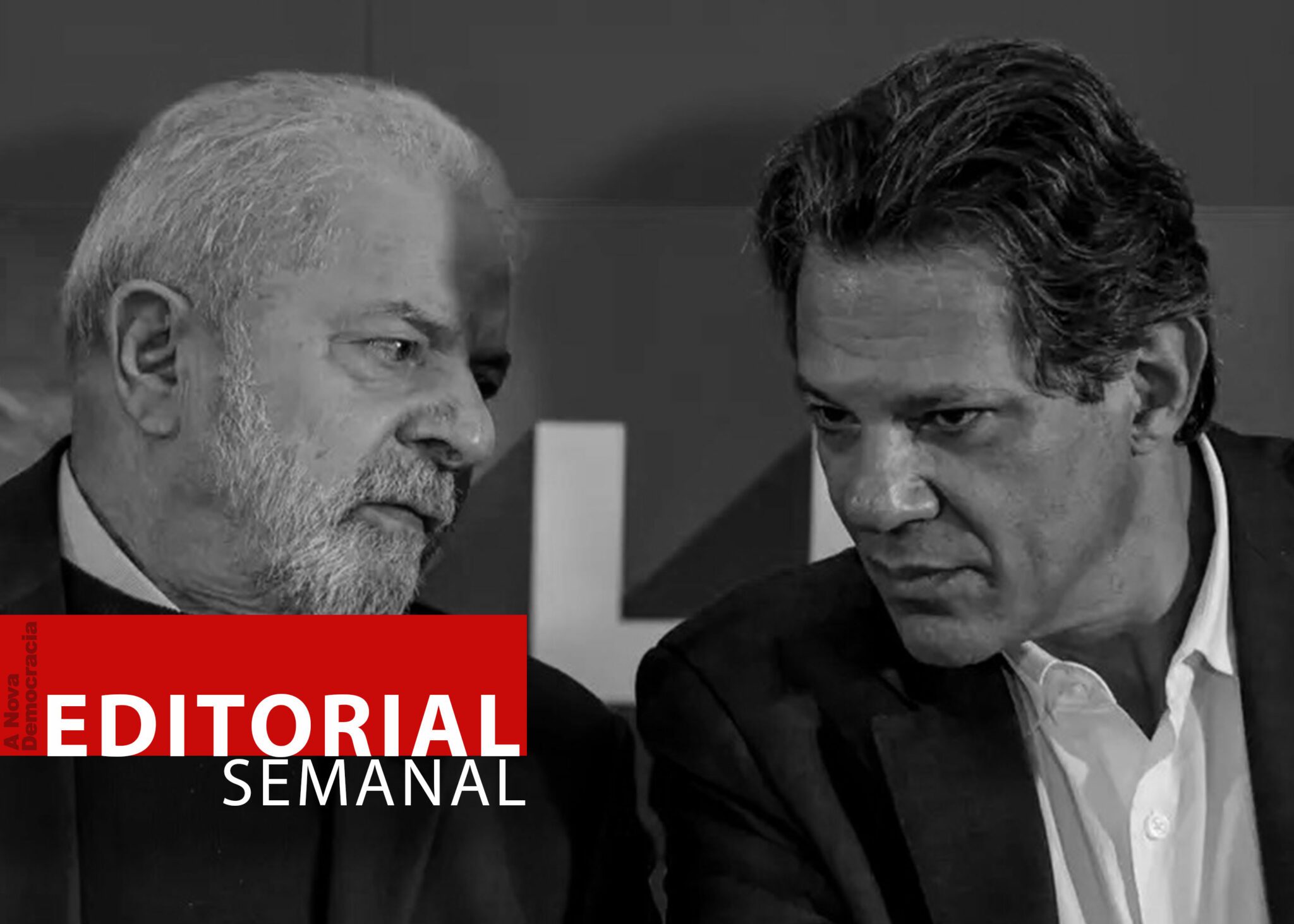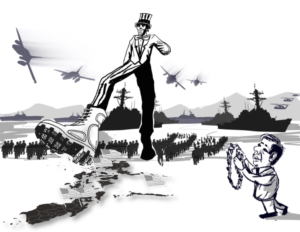
AND Weekly Editorial – Raise mass popular resistance and sweep away conciliators to defeat reaction
We publish an unofficial translation of an article of A Nova Democracia found here.
It’s been 7 months of government. The country is moving, more or less surely, towards the approval of the central measures, acclaimed for many years by the most powerful sectors of the local ruling classes and demanded by imperialism, mainly Yankee, through the international agencies of the international financial oligarchy.
A new “spending ceiling” is in advanced stages, restricting the growth of spending on public services to just 75% of the economy’s growth rate, and to 0% when it stagnates or goes into recession, with fiscal penalties if there is no compliance. It is, in fact, a “spending ceiling”, as Michel Temer himself praised, but even worse, insofar as it will be applied, while the previous one was always “punctured”.
What is also marching forward is the “tax reform”, whose approval has been euphorically treated by the ideologues of the reaction. The reform does not reduce a single cent of the tax burden on consumption – that is, the masses will continue to pay the same –, however, it keeps exports from large estates far away from any taxes, which no longer contributes a single cent to Social Security, in addition to guaranteeing loans with a good part of the interest paid by the government itself. Large industrial companies will not be taxed by the Industrial Product Tax and banks will have a “special regime” to be defined later, to the general dread of the Nation.
On the other hand, the government of the opportunist alliance and the traditional right has not done just that. To balance, it has done its homework with regard to demagoguery and blackmailing the popular masses. Faced with the most important ongoing struggles, Luiz Inácio cannot meet the demands of the masses because he would clash with the interests of sectors with which they have agreements, and seek to exempt themselves from responsibility. He did so, for example, by not making mandatory the application of the New Secondary School, which has been the target of important struggles by the student movement, teachers and specialists in Education with dozens of strikes of occupation of schools, meetings and demonstrations, and whose reform is of interest to the large private education monopolies (whose representatives are present, including in the government such as the Minister of Education) and the World Bank. He also did so in relation to struggles for the minimum salary in nursing, giving the first category a loan to pay the minimum wage as long as the workload was increased to 44 hours per week, as decided by the supreme court, which bore the burden of the decision. All these maneuvers, which compromise on what is insignificant in order to preserve what is essential – or concede on one point in exchange for withdrawing something of greater value –, have ensured a relative maintenance of the government’s popularity (its approval rating is at 56%, growing by 5% compared to April, according to Quaest).
Brazil has demonstrated, with particular accuracy, that in times of crisis and revolutionary agitation, opportunism in the management of the old State is the most effective way of maintaining the old order.
Far from encouraging opportunism, however, the situation is very delicate. How far will the government’s margin allow opportunism to maneuver? The margin – which is determined by the level of the economic and political crisis and the agitation of the popular masses for their rights – tends to narrow, not widen. The imperialist economy, at a world level, is beginning a new recession – the foreshadowing of which is the so-called “credit crunch” in the United States, revealed a month ago. World politics, shaken by the struggles between the superpowers and imperialist powers, and by the war of aggression against Ukraine, does not provide the necessary stability; and, in domestic politics, the government has to deal with a potentially hostile Congress, eager for funds and ministerial positions and with enormous power to create obstacles, while it sees itself surrounded by the existence of hostile reactionary Armed Forces convinced that the “future of the Nation” depends on its leadership and tutelage, lurking to, at the first shock, nurture ways to overthrow the government, preferably through the constitutional route. Added to this is the fact that the masses do not believe that their demands, repressed by the biggest crisis of bureaucratic capitalism in the country (which has already lasted 8 years), will be met, although this was what was promised in the electoral campaign, in which the majority did not participate or did so apathetically. Frustration, well, or other reasons, will come and take the toll with great social disarray. None of this indicates that the margins for maneuver will become wider for the government. feed forms of overthrowing the government, preferably through the constitutional route. Added to this is the fact that the masses do not believe that their demands, dammed up by the biggest crisis of bureaucratic capitalism in the country (which has already lasted 8 years), will be met, although this was what was promised in the electoral campaign, in which the majority did not participate or did so apathetically. Frustration, or other reasons, will arrive and will charge the bill with great social disorder. None of this indicates that the margins for maneuver will become wider for the government.
As Lenin had said, regarding the opportunist Provisional Government of the Mensheviks and Socialist-Revolutionaries (Kerensky) in May 1917: “every step of the Provisional Government, in both its domestic and foreign policies, is bound to open the eyes, not only of the proletarians in town and country and semi-proletarians, but also of the broad sections of the petty bourgeoisie, to the real nature of this government”
Regardless of anyone’s will, this reactionary government will be crossed by the crisis. The regime, politically inept to mediate conflicts, on the one hand, and the depth of the economic crisis and its impacts on the explosive mood of the masses of the people, on the other, determine this. When such a crisis comes, the putschist generals, lurking, will silently take the initiative, but through their already known blackmail, advancing positions to impose their ultra-reactionary “Nation Project”. The issue, therefore, poses a challenge to the people’s mass movement to raise the flames of popular protest in defense of the interests and rights of the people and the independence of the Nation, barring government attacks and preparing a powerful wall of masses to resist the advance of the preventive counterrevolutionary offensive; isolate and sweep from its midst the conciliatory positions of the government’s base in the people’s movement destined for capitulation.

